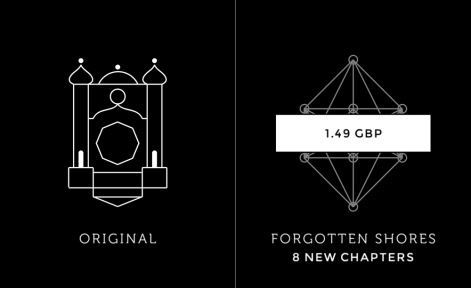There's been a bit of an uproar over the Monument Valley: Forgotten Shores expansion from gamers who didn't think that the game was worth $1.99.
Yes, consumers are absolutely entitled to behave this way - I won't dispute that. However, I'm more curious at the reasons why.
My gut reaction? In the age where the barriers to creativity are lower and the barriers to distribution have been annihilated, content is now worthless. After all, it was only a matter of time before 'free' becomes the assumed business model.
We saw this with the race to the 99c price point back in 2009, and we've seen this with free-to-play.
Why would someone feel the need to pay for anything when everyone else gives it to them for free?
What did Monument Valley do that was so great to be worth any additional money?
Singing that same old tune
The best parallel is the music industry, which served as the canary in the coal mine with how digital distribution would work.
Live performances and merchandising are the only way to make money from music.
People were given access to the entirety of recorded music for no cost (albeit via piracy), and the industry was forced to adapt. Musicians don't make music to sell music now, they make music to sell t-shirts. Live performances and merchandising have become more important than ever because it's almost literally the only way to make money from music.
People won't buy a band's album for ten bucks, but they'll pay thirty bucks for their t-shirt. It's because that t-shirt represents something more than the t-shirt, it speaks to a person's identity, what they enjoy, what they choose to enjoy and want to represent them. It's emotional – and it can be profitable.
It's a rough living for many artists, but there are those who do thrive despite the difficulty in album sales.

There is a parallel to free-to-play gaming here. A large swath of the mobile gaming audience is resistant to paying any money for games now, because, well, there are so many free options but, as we've seen, free-to-play makes money because once players get hooked into a game, it becomes possible to sell them in-app purchases, and often for more than what premium purchases are worth.
In a world where games are free, game developers are now in the advertising and cryptocurrency businesses.
It's about monetising the emotions – about getting the player to enjoy the game enough that they want to spend money within its economy so that they can play more or get more out of it.
In a world where games are free, game developers are now in the advertising and cryptocurrency businesses.
Looking ahead
This is the future. Widespread internet is the biggest shift to civilization and culture since the printing press, because it's eliminating the very concept of physical product for ideas and entertainment. And when everything is available all at once, why should anyone pay for it?
Sure, music's kick in the pants was Napster forcing everything free, but I think this was just a cultural inevitability, that as technology improved and internet became faster and more accessible, that any kind of content that can be given away for free would be given away for free, with the monetization being secondary.

Now, saying that all product is dead is an exaggeration, because it's still possible to make money off of product.
Look at Taylor Swift. There was a brouhaha over her taking her music off of Spotify, yes. Many musicians complain about Spotify because it pays so little in royalties, but it's still better than nothing when you can find any music you want uploaded to YouTube, not to mention any pirate site.
Taylor Swift can afford to take this stance because she actually can sell lots of albums. As such, there are still artists who can sell their art, but they're the exception, not the rule. What's more, to a large extent, Taylor Swift just got really good at selling Taylor Swift, and at making money off of people caring about Taylor Swift.
When products are endless, and the cost is nothing, it takes a truly exceptional product to succeed.
Ustwo is in much the same position, making its creative director mills its Taylor Swift. Ustwo also found a way to sell not just its game, but the idea of the firm's game. The studio is still monetising emotion – it's just able to do it at a different point. Yes, there are people who hate ustwo, and are entitled enough to think that they shouldn't have to pay, but it says something about the power of ustwo's creation that an army was assembled on their behalf to counteract those haters.
Similary, I believe Ms. Swift has a song relating to the detractive nature of harsh critics, and how to deal with them.
The point is this: when products are endless, and the cost for most product is nothing, it takes a truly exceptional product to succeed when you charge up front for it when so many others will give it away for free and find ways to get people to pay later on down the road.

I believe that for developers who can succeed with smaller total amounts of revenue or if they have a truly exceptional product, that there's still an audience out there that wants to pay for games and feels passionately about doing so.
You are the product
However, there's only one Taylor Swift, there's only one mills, and it's because they've helped to create special products that resonate with people to the point where they're willing to pony up for the products in a world where they don't have to.
So, the odds are, unless you really believe your game is the next Monument Valley, you're not in the game-making business - you're in the advertising and virtual currency business.
The majority of mobile gamers don't want to pay for your game, they don't feel like they have to, and they really don't have to because they have more games than they could ever hope to play at their disposal.
Your game itself? It's worthless. The value is in what the game does and that's how you need to think if you want to make money.





















